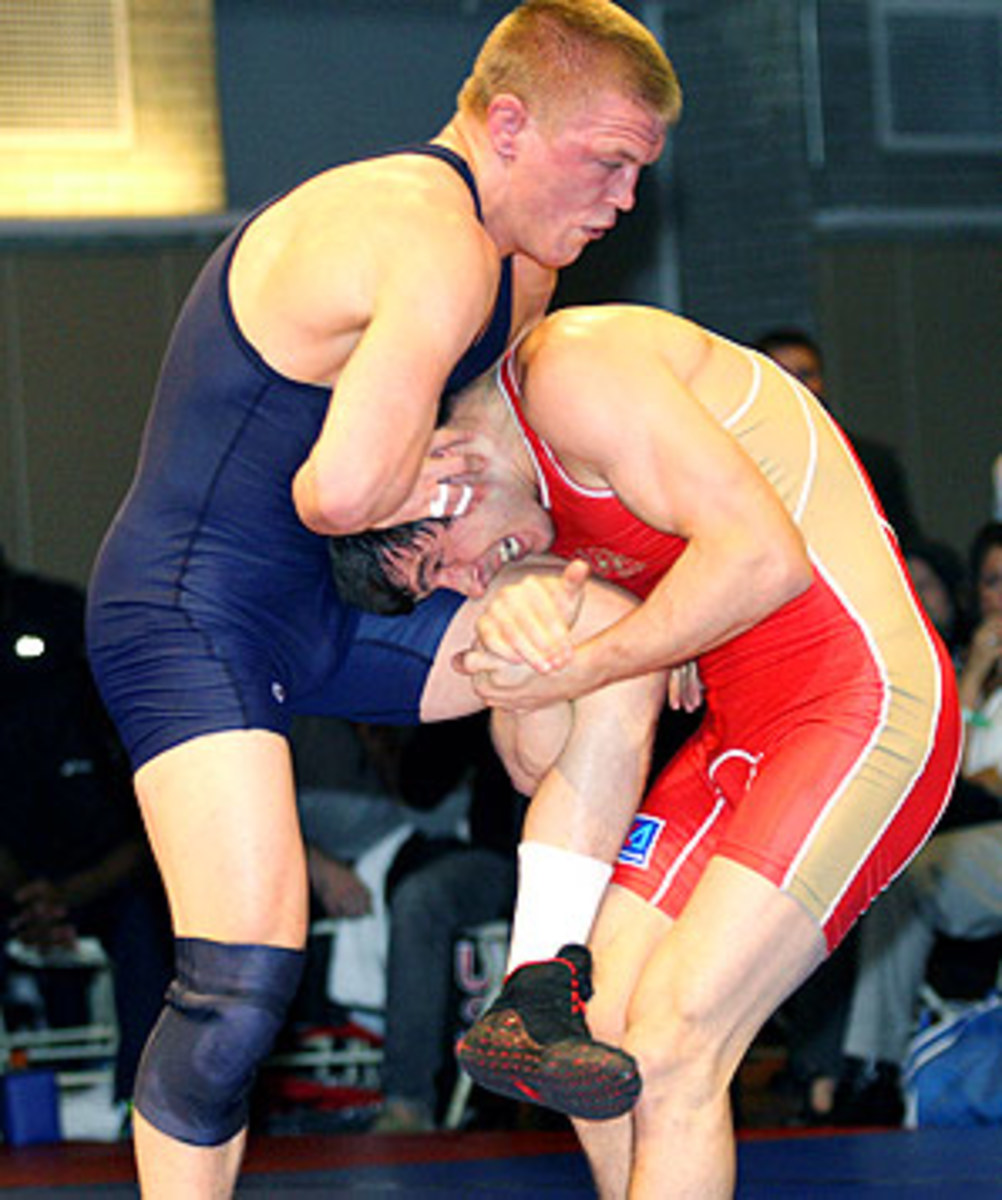USA wrestling team climbing back up the world rankings
On Friday Nov. 11, five United States wrestlers defeated Russian wrestlers in a USA vs. Russia freestyle dual match. Andrew Howe wasn't one of them. The following Sunday, four U.S. wrestlers won freestyle gold medals at the New York Athletic Club international wrestling tournament. Andrew Howe wasn't one of them.
The Olympic hopeful still has plenty of time left to become the best in the world, but first things first -- right now Howe's not even the best in his country. He's just the guy behind 2011 world champion Jordan Burroughs.
"I want to be the guy and to do that I've got to go through him," said Howe who, like Burroughs, wrestles in the 74 kg weight class.
The 2010 NCAA champ has left his collegiate home in Wisconsin -- he's using an Olympic redshirt in his senior year to give him one more year of college eligibility -- and is now training at the Michigan Regional Training Center in Ann Arbor.
The state of the art training facilities in Ann Arbor could help USA Wrestling reach their greatest potential before the 2012 games. It gives wrestlers an alternative training locationto the Olympic Training Center in Colorado Springs.
"It's an awfully big country, and not everyone wants to live in Colorado," said Michigan assistant coach Donny Pritzlaff, who had a successful international career from 2002-2006, and has been Howe's primary training partner since he recruited him to Wisconsin in 2008. When Pritzlaff left Wisconsin for the University of Michigan, and the Ann Arbor training center, for the 2011-2012 season, Howe followed.
However first year assistant coach Sean Bormet, who has coached Pritzlaff, Howe and Northwestern University graduate Jake Herbert, is the primary reason Michigan's campus is full of Olympic hopefuls.
"He's the best coach in the nation right now," said Herbert, Northwestern University's first ever Hodge trophy winner for the best NCAA wrestler. "I think he's one of the best coaches in the world."
Bormet, a three-time USA Wrestling Freestyle Coach of the Year, started coaching Howe when he was an eighth grader and has been working with Herbert for seven years. He also recruited Pritzlaff and worked with him as a collegiate wrestler at Wisconsin.
"For me it's all about the athletes,' Bormet said. "It's not about me."
Like Howe, Herbert is the second-ranked wrestler in the U.S. at his weight class. He placed higher than any other U.S.wrestler at the 2010 World Championships, winning a silver medal at 84kg, but at the 2011 World Team Trials Herbert lost to current Penn State coach Cael Sanderson, the only undefeated wrestler in NCAA history.
Both Herbert and Howe symbolize the growing depth of America's wrestling team. The United States won a team title at the 1984 Olympics, but has not had multiple freestyle gold medalists in a single Olympics since 1996. Current Team USA coach Zeke Jones took over the program in 2009 and was charged with returning the United States to the top of the world.
"We haven't won medals for 10 years," said Jones, who didn't think the singular freestyle gold medal performances in 2008 (Henry Cejudo), 2004 (Cael Sanderson) and 2000 (Brandon Slay) were worth mentioning.
This year, Jones is finally starting to see improvement. The United States finished third at the 2011 world championships. More wrestlers are going to train full-time. There is competition swirling around the Olympic team spots.
In Ann Arbor the athletes enter an ideal training situation. They're paid to train and don't have to worry about supporting themselves financially by working part time or coaching on the side. Pritzlaff says the regional training center is "the best facility in the world," but points out that the people -- like former Olympic Training Center strength coach Mike Favre -- are what make it so successful. Neither Howe, Herbert, nor any of their four full-time teammates are the best in the world right now, but Ann Arbor has the infrastructure in place to produce an Olympian (or six).






